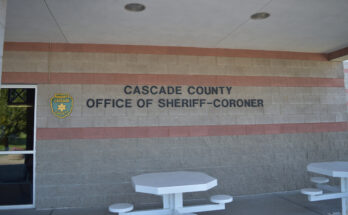
Quitting smoking presents significant challenges, requiring both time and a comprehensive plan. The Great American Smokeout serves as a pivotal opportunity to commence the journey towards a smoke-free life.
The Great American Smokeout event has helped dramatically change Americans’ attitudes about smoking. These changes have led to community programs and smoke-free laws that are now saving lives across the country. Annual Great American Smokeout events began in the 1970s when smoking and secondhand smoke were common.
For nearly fifty years, the American Cancer Society has facilitated the Great American Smokeout, which provides an important occasion for individuals who smoke to commit to healthier, smoke-free lives. The Great American Smokeout is traditionally observed on the third Thursday of November, which will take place on November 21st, 2024.
Participants are invited to join thousands of fellow smokers across the nation in taking a crucial step toward achieving a healthier lifestyle and mitigating cancer risk. The American Cancer Society offers access to essential resources and support to assist individuals in their efforts to quit.
The Great American Smokeout encourages individuals, community organizations, businesses, healthcare professionals, and others to use this date to join together in the challenge to quit smoking and promotes awareness of the various tools available to support their efforts to quit.
Nicotine serves as the addictive component present in tobacco and is recognized as one of the most potent and hazardous forms of addiction. This inherent difficulty in cessation explains why many individuals who smoke struggle to quit. Research indicates that the intensity of addiction is typically correlated with the age at which an individual initiates smoking.
Studies demonstrate that success in quitting smoking is significantly enhanced when individuals access various forms of support, including but not limited to:
– Telephone quitlines
– The American Cancer Society’s Empowered to Quit email-based tobacco cessation program
– Nicotine Anonymous meetings
– Self-help literature and resources
– Professional smoking cessation counselors or coaches
– Support and encouragement from family members and friends
Utilizing two or more of these strategies is generally more effective than relying on a single method. For example, some individuals might combine prescription medications with nicotine replacement therapies, while others may implement several support options concurrently. Professional guidance can assist individuals in selecting the most appropriate approach tailored to their specific needs.
Annually, the Great American Smokeout event highlights the need to prevent smoking-related mortality and chronic diseases. Throughout the late 1980s and 1990s, numerous state and local governments undertook significant measures, including the enactment of smoking bans in workplaces and restaurants, increases in cigarette taxation, restrictions on tobacco promotions, and initiatives aimed at discouraging youth smoking. These efforts continue today.
Cigarette smoking remains the foremost cause of cancer-related mortality in the United States, accounting for 3 out of every 10 cancer deaths. Smoking also causes cancers of the larynx (voice box), mouth, sinuses, pharynx (throat), esophagus (swallowing tube), and bladder. It also has been linked to the development of cancers of the pancreas, cervix, ovary (mucinous), colon/rectum, kidney, stomach, and some types of leukemia.
Significant progress has been made in recent decades in transforming public attitudes towards smoking, advancing the understanding of nicotine addiction, and developing effective strategies to assist people to quit. The American Cancer Society’s Great American Smokeout event is observed with various activities, including rallies, parades, educational initiatives on quitting, and the promotion of “cold turkey” menu items in schools, workplaces, main streets, and legislative venues throughout the United States.
For more than 40 years, the American Cancer Society has organized the Great American Smokeout on the third Thursday of November. This annual event provides an invaluable opportunity for individuals, college campuses, community organizations, businesses, healthcare providers, and others to encourage those who use tobacco to either formulate a quit plan or execute a tobacco cessation strategy on the designated day.
Quitting smoking is a challenging endeavor, but you can do it with the help of the American Cancer Society. The American Cancer Society is accessible 24 hours a day, 7 days a week, providing assistance ranging from inquiries regarding smoking cessation to the identification of national and local resources designed to aid individuals in their efforts to quit. For additional information, please visit cancer.org/smokeout or contact 1-800-227-2345.


